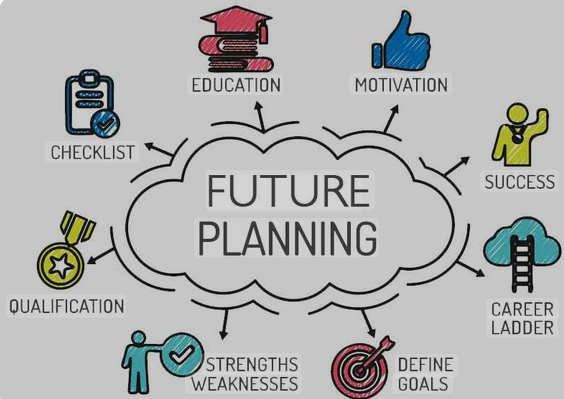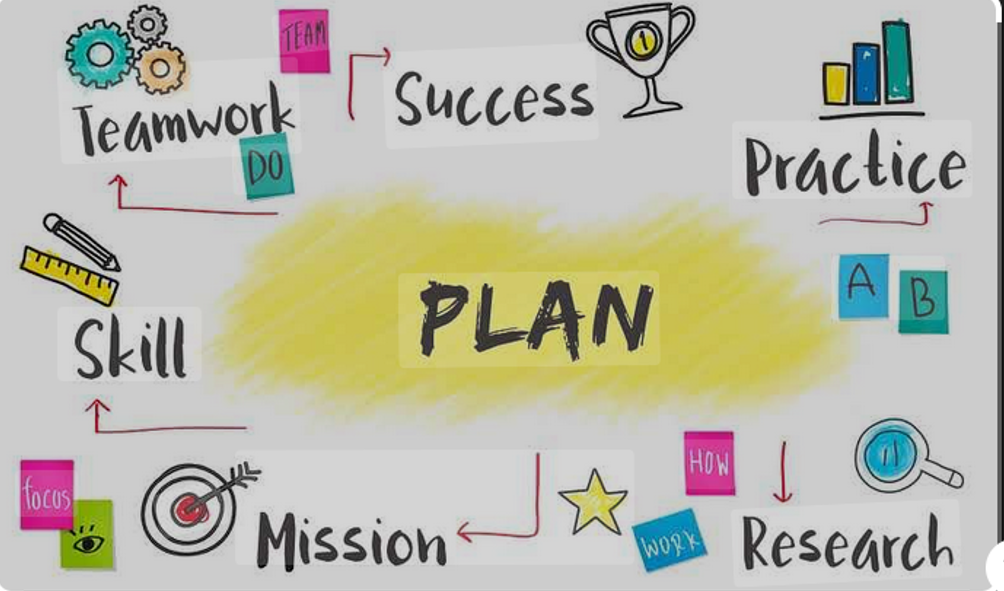Every young boy Future Plans holds within him a world of dreams, questions, and possibilities. From the moment a child begins to understand the world around him, he starts to imagine what he wants to be when he grows up. While some boys dream of becoming astronauts, doctors, athletes, or engineers, others are inspired by musicians, teachers, entrepreneurs, or the quiet heroes in their own families. The future is a vast and open canvas, and the plans boys make for their futures are shaped by a blend of imagination, environment, education, experiences, and the ever-evolving world around them.

The Early Sparks of Aspiration
In early childhood, boys often express their future plans in simple, playful terms. They might want to be a superhero, a firefighter, or a racing car driver. These early ideas are not trivial; they represent the seeds of ambition. Play, curiosity, and exploration are how boys begin to understand roles, values, and potential career paths. A boy fascinated by how things work might tinker with toys, take things apart, and unknowingly take his first steps toward becoming an engineer or scientist. Another boy who loves stories and drawing might later pursue writing, filmmaking, or design.
What’s essential during these early years is the encouragement of dreams, no matter how unrealistic they might seem. It is through exploration and imagination that children gain the confidence to think about the future as something they can shape and influence.

Influences That Shape Future Plans
As boys grow, the sources that shape their future plans expand. Parents, teachers, friends, media, books, and role models all play a part in influencing a boy’s aspirations. A boy who sees his mother working hard as a nurse may develop an admiration for healthcare workers and consider becoming a doctor. A teacher who recognizes a student’s talent for numbers or language might inspire a boy to pursue careers in finance or literature.
Society and culture also play a significant role. In some cultures, boys are encouraged to follow traditional roles—perhaps joining the family business or becoming an engineer or lawyer. In others, boys might feel free to explore unconventional or artistic careers. The more supportive and inclusive a society is, the more freedom boys have to express and pursue their interests.
The Role of Education
Education is a powerful tool that helps boys transform vague dreams into concrete plans. School introduces boys to different subjects, disciplines, and activities. It helps them discover where their strengths lie, whether in math, science, art, literature, or sports. A good education system doesn’t just deliver knowledge—it helps boys develop critical thinking, communication skills, creativity, and resilience.
Extracurricular activities also play a vital role. Sports, music, robotics clubs, drama, or student councils allow boys to discover passions beyond the classroom. These activities build confidence, teamwork, and leadership skills, which are crucial in shaping their visions for the future.
Guidance counselors, career workshops, and exposure to real-world professionals can help boys understand what different careers entail. They learn that becoming a software engineer isn’t just about coding, but about problem-solving and innovation. They find out that being a teacher requires patience, empathy, and communication, not just knowledge.
Modern-Day Career Options and Interests

Unlike past generations, boys today are growing up in a rapidly changing world. Traditional careers are still valued, but technology, globalization, and innovation have opened up new and exciting paths. The digital age has given rise to careers in coding, game design, app development, and digital marketing. The focus on climate change and sustainability has created demand for environmental scientists, renewable energy engineers, and urban planners.
Many boys are also drawn to creative industries. YouTube, TikTok, and other platforms have inspired boys to become content creators, filmmakers, animators, or influencers. While some adults may dismiss these aspirations, they reflect a shift in how success and creativity are perceived in the 21st century.
Moreover, the gig economy and entrepreneurship have become more prominent. Boys are increasingly exposed to the idea that they can build their own businesses, work independently, or innovate in fields that don’t even exist yet. This sense of possibility is powerful, but it also comes with the responsibility of learning how to navigate an uncertain world.
The Importance of Mentorship and Role Models
| successfu | successfu |
| successfu successfu | successfu successfu |
For boys to successfully pursue their future plans, they need guidance. Mentorship is crucial in helping boys see what’s possible and learn how to get there. Whether it’s a teacher, coach, parent, or older sibling, a mentor can offer advice, encouragement, and real-world experience.
Positive role models also help break stereotypes. Boys need to see men who are compassionate, artistic, or nurturing, just as they need to see those who are strong, competitive, or ambitious. Exposure to diverse examples helps boys realize they don’t need to fit into one mold. They can be athletes and artists, tech geeks and environmentalists, caregivers and leaders.
Emotional and Mental Readiness
Planning for the future isn’t just about academics or career decisions. Emotional and mental growth are equally important. Boys must learn how to deal with failure, setbacks, and pressure. They must develop resilience, empathy, and a healthy sense of self-worth.
Too often, boys are taught to “man up” or hide their emotions. This can lead to mental health challenges that affect their confidence and ability to plan for the future. Encouraging emotional expression, promoting mental health awareness, and creating safe spaces for boys to talk openly about their fears and hopes can greatly enhance their journey.
Overcoming Challenges
Not all boys have equal opportunities to plan for a bright future. Many face poverty, broken homes, discrimination, bullying, or lack of access to quality education. These challenges can narrow their view of what’s possible. For boys in these circumstances, future planning might seem like a luxury rather than a right.
However, stories abound of boys who rose above their hardships with determination and the help of caring adults or communities. Schools, governments, and NGOs must work together to ensure that every boy has the support, resources, and opportunities to dream big and pursue their goals.
Long-Term vs. Short-Term Goals
Boys also need to learn how to balance long-term visions with short-term goals. It’s great to dream of becoming a doctor or an architect, but what steps need to be taken today to get there? Setting short-term goals—such as improving in science class, joining a math club, or volunteering at a hospital—makes long-term ambitions feel more achievable.
Learning goal-setting techniques, time management, and discipline helps boys stay on track. Celebrating small victories along the way keeps motivation high and helps them adjust their plans as they grow and learn more about themselves and the world.
Evolving Dreams
One important lesson for boys to understand is that it’s okay for dreams to change. A boy might want to be a pilot at age ten, a musician at age fifteen, and a teacher by the time he finishes college. These changes are not failures—they are signs of growth.
Life is not a straight path, and the future is full of surprises. Teaching boys to stay curious, flexible, and open to change is vital. Sometimes, detours lead to the most meaningful destinations.
The Role of Technology in Planning
Technology has become a crucial tool in helping boys explore and plan their futures. Online courses, career aptitude tests, virtual internships, and mentorship platforms allow boys to learn about careers and develop skills from an early age. They can research colleges, watch videos about different professions, or connect with professionals from around the world.
However, technology must be used wisely. Boys need guidance in navigating the digital world, distinguishing reliable information from misinformation, and developing digital literacy that will serve them in any field.
The Bigger Picture: Character and Contribution
While career and academic goals are important, boys must also be encouraged to think about their values, purpose, and impact on society. What kind of man do they want to become? How do they want to contribute to their communities? Do they want to lead, serve, create, or heal?
Future planning should include reflections on character—honesty, kindness, responsibility, and courage. A successful future is not just one that brings personal gain, but one that also makes a difference in the world.
Conclusion
The future is not a destination—it’s a journey. For boys, making plans for the future is an exciting, sometimes intimidating, but ultimately empowering process. It requires imagination, support, resilience, and opportunity. Whether a boy dreams of becoming a scientist, a writer, a coach, or a social worker, his path should be nurtured with guidance, love, and education.
In helping boys plan for their futures, society must listen to their voices, believe in their potential, and provide them with the tools to build lives that are not only successful, but meaningful. Because when boys are given the freedom to dream and the support to achieve, they don’t just build a future for themselves—they shape the future of the world.
Let me know if you want this essay as a Word or PDF document, or if you’d like to customize it (e.g., make it more personal, focus on a particular country or age group, etc.).
http://wish-club.ru/forums/index.php?autocom=gallery&req=si&img=5233
Awesome https://shorturl.at/2breu